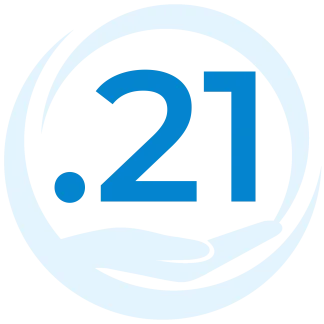Forest View Hospital
Forest View Hospital is a private rehab located in Grand Rapids, Michigan. Fores...
Point 21 Recovery is a women-owned outpatient treatment center located in West Michigan. Our goal is to provide compassionate and ethical care to help individuals and their families struggling with alcohol and substance addiction. All our services are available via Telehealth to provide accessibility to those unable to travel to a treatment center.
At Point 21 Recovery, we work on the development of five key elements that make the difference between people who achieve sustainable recovery and those who continued to struggle with lifelong addiction. These five elements act as the foundation from which recovery is built.
Foundations of faith, motivation, health, self, and action are used to reinforce positive mental processes by incorporating basic fundamental truths and evidence-based tools necessary for personal transformation. Each foundation works to reverse self-defeating behaviors and thoughts, address core issues, and refine interpersonal principles that support personal growth and provide lasting recovery.
Our mission is to provide you with life-transforming tools on your journey to recovery and to help you become the best person you can be.
We offer assessments, drug screens, a first offender program, a repeat offender program (R.O.P.E), outpatient, and intensive outpatient therapy.
From initial contact with our team, individuals can complete required forms, make payments, schedule appointments, register for programs, and participate in services all through our secure portal.
Our user-friendly patient portal can facilitate live communication between provider and patient through a HIPAA compliant audio-video interaction using a smartphone, tablet, or computer.
We provide the highest quality evidence-based digital services by licensed and qualified professionals.
Contact us for more information: (616) 855-6402

Connect with Point 21 Recovery by calling their admissions team directly.
(616) 855-6402 Website Get DirectionsResearch clearly demonstrates that recovery is far more successful and sustainable when loved ones like family members participate in rehab and substance abuse treatment. Genetic factors may be at play when it comes to drug and alcohol addiction, as well as mental health issues. Family dynamics often play a critical role in addiction triggers, and if properly educated, family members can be a strong source of support when it comes to rehabilitation.
Group therapy is any therapeutic work that happens in a group (not one-on-one). There are a number of different group therapy modalities, including support groups, experiential therapy, psycho-education, and more. Group therapy involves treatment as well as processing interaction between group members.
In individual therapy, a patient meets one-on-one with a trained psychologist or counselor. Therapy is a pivotal part of effective substance abuse treatment, as it often covers root causes of addiction, including challenges faced by the patient in their social, family, and work/school life.
Group therapy is any therapeutic work that happens in a group (not one-on-one). There are a number of different group therapy modalities, including support groups, experiential therapy, psycho-education, and more. Group therapy involves treatment as well as processing interaction between group members.
In individual therapy, a patient meets one-on-one with a trained psychologist or counselor. Therapy is a pivotal part of effective substance abuse treatment, as it often covers root causes of addiction, including challenges faced by the patient in their social, family, and work/school life.
In individual therapy, a patient meets one-on-one with a trained psychologist or counselor. Therapy is a pivotal part of effective substance abuse treatment, as it often covers root causes of addiction, including challenges faced by the patient in their social, family, and work/school life.
Forest View Hospital is a private rehab located in Grand Rapids, Michigan. Fores...
Alcoholism Treatment and Recovery is a private rehab located in Grand Rapids, Mi...
Pine Rest Christian Mental Health Services–Community Services Clinic, in Grand R...
Guiding Light is an accredited faith led drug and alcohol rehab in Grand Rapids,...